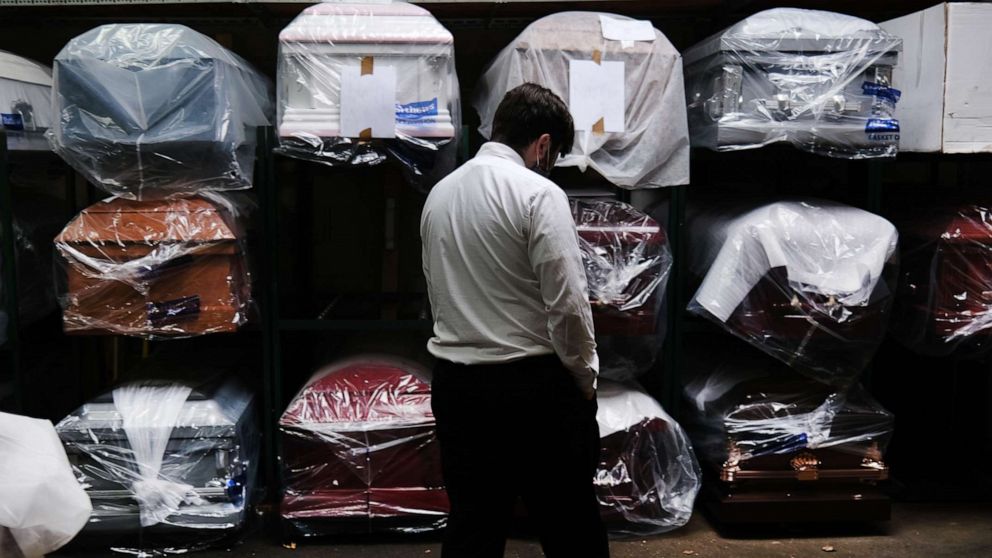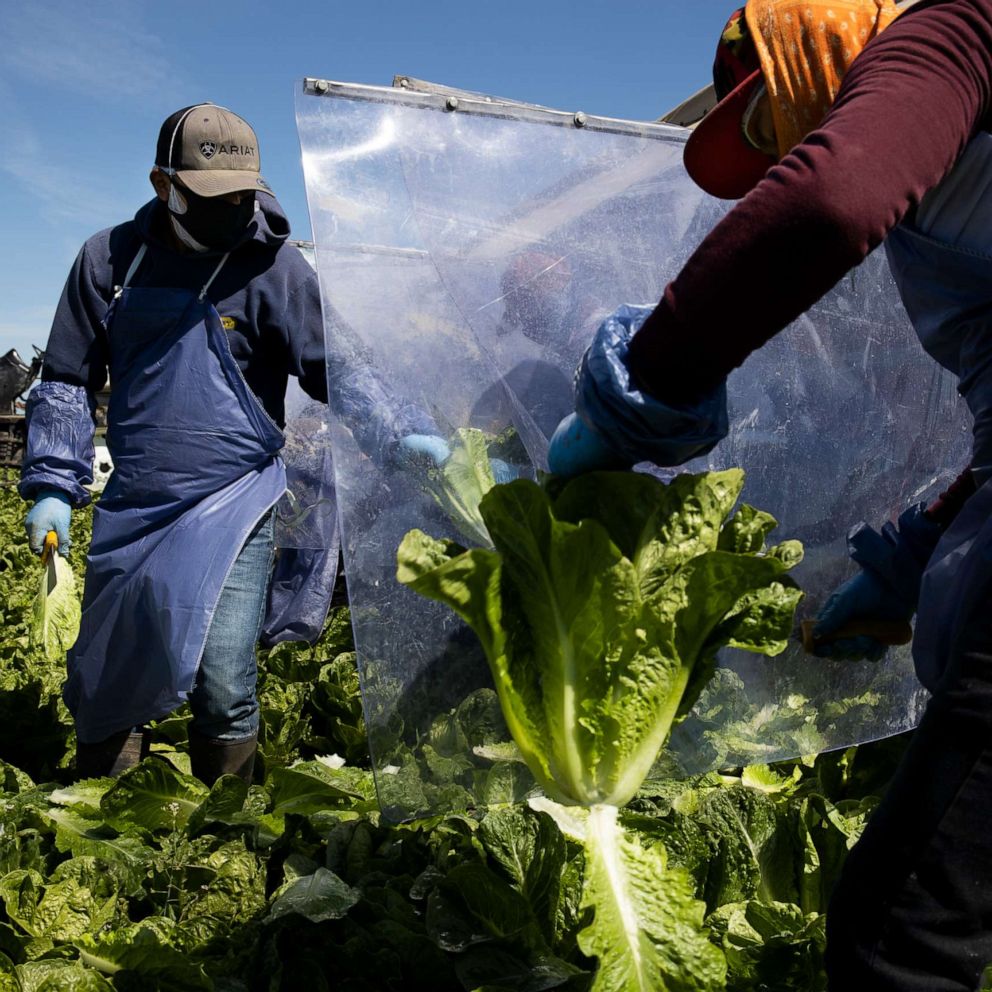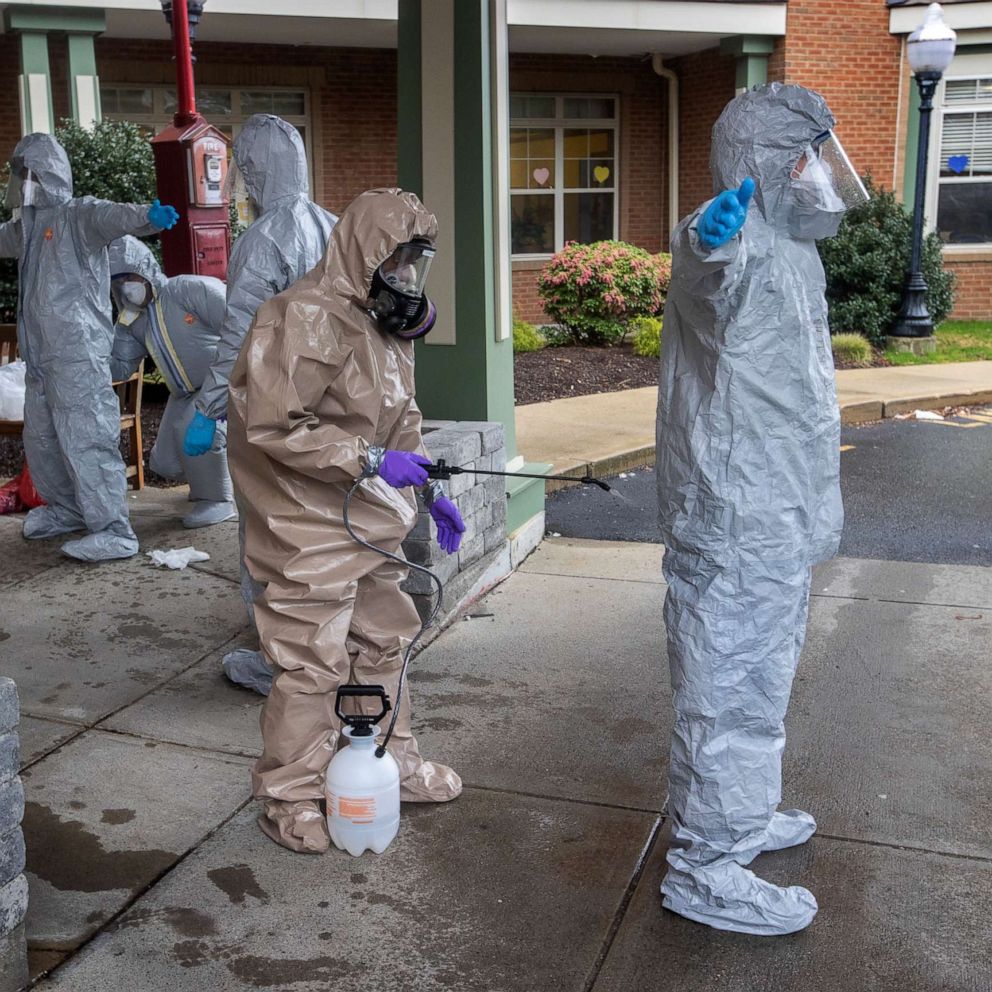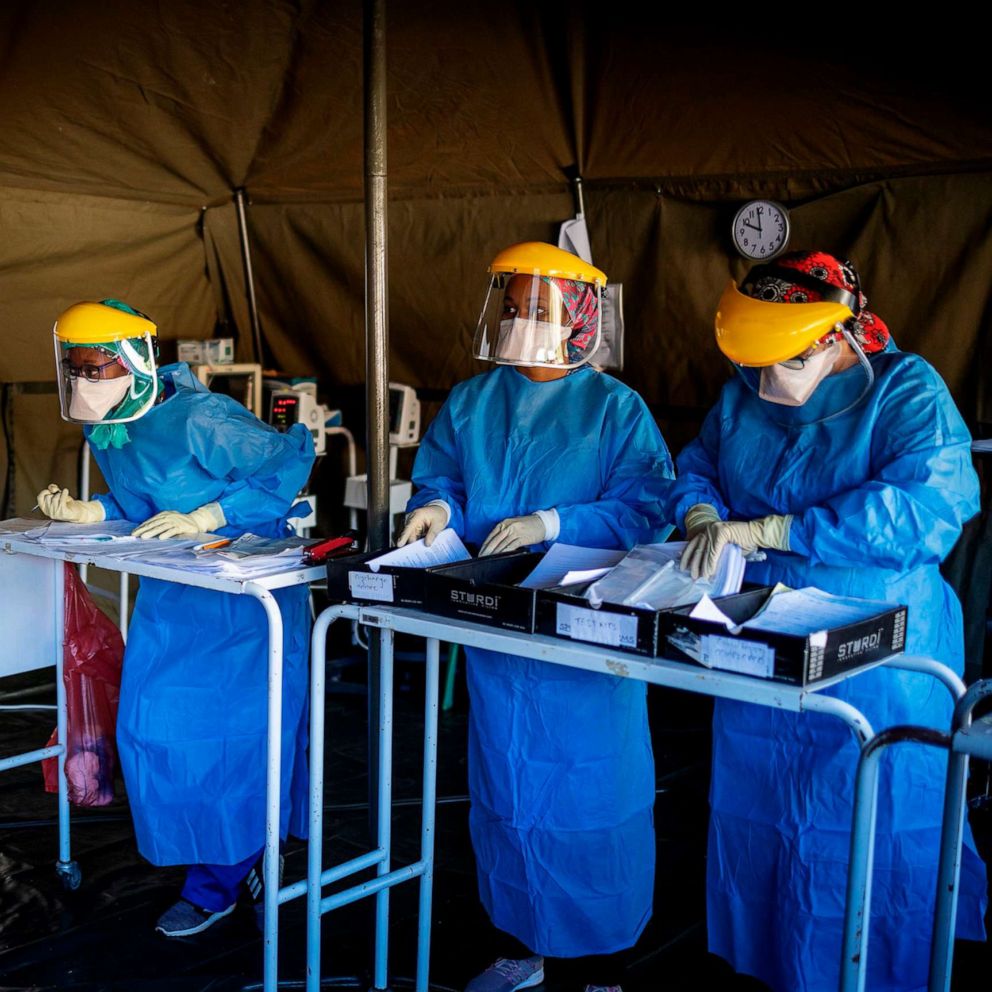As pandemic continues, global coronavirus deaths surpass 250,000
A pandemic of the novel coronavirus has now killed more than 250,000 people worldwide.
Over 3.5 million people across the globe have been diagnosed with COVID-19, the disease caused by the new respiratory virus, according to data compiled by the Center for Systems Science and Engineering at Johns Hopkins University. The actual numbers are believed to be much higher due to testing shortages, many unreported cases and suspicions that some governments are hiding the scope of their nations' outbreaks.
Since the first cases were detected in China in December, the United States has become the worst-affected country, with more than 1.1 million diagnosed cases and at least 68,442 deaths.
Monday's biggest developments:
Here's how the news is developing Monday. All times Eastern.
6:36 p.m.: COVID-19 global deaths top 250,000
The COVID-19 pandemic has reached another grim milestone as more than a quarter million people worldwide have now died from the novel coronavirus.
According to Johns Hopkins University's tally, 250,687 people have died of the virus as of Monday evening.
Death from COVID-19 has reached every continent expect Antarctica.
Chinese authorities reported the first death from the new coronavirus on Jan. 11. Three months later, on April 10, worldwide deaths surpassed 100,000. Only 15 days after that, on April 25, worldwide deaths doubled, surpassing 200,000. Now, nine days later, the death toll is a quarter million.
There are more than 3.5 million confirmed cases worldwide, according to Johns Hopkins University.
4:12 p.m.: California governor sued by Newport Beach councilman
California Gov. Gavin Newsom is being sued by a Newport Beach official after the governor closed the overcrowded Orange County beaches, which includes Newport Beach.
The "images we saw on the beaches were disturbing," Newsom said last week when announcing the beach closings. "Everyone saw those images and we’re all concerned about that. … That’s what ultimately led to this decision."
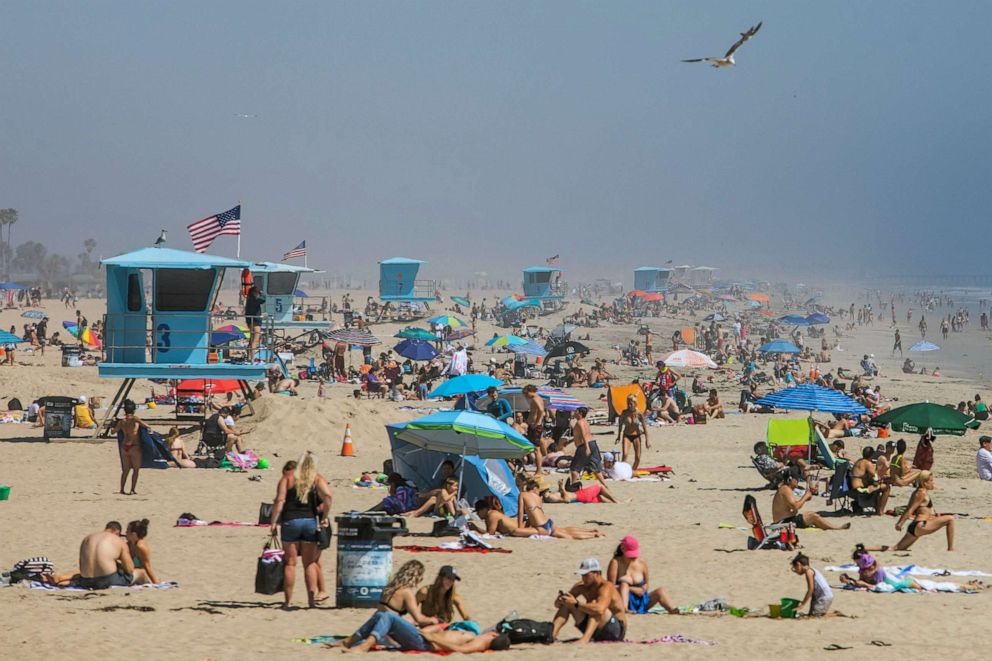
In his suit, Kevin Muldoon, a former Newport Beach mayor and current city councilman, says Newsom, California's attorney general and other state officials "abused their power by seizing on the coronavirus pandemic to expand their authority to unprecedented lengths," and are showing "a willingness to ignore and to violate the fundamental civil rights of California residents."
Muldoon claims Orange County was unfairly singled out by the governor.
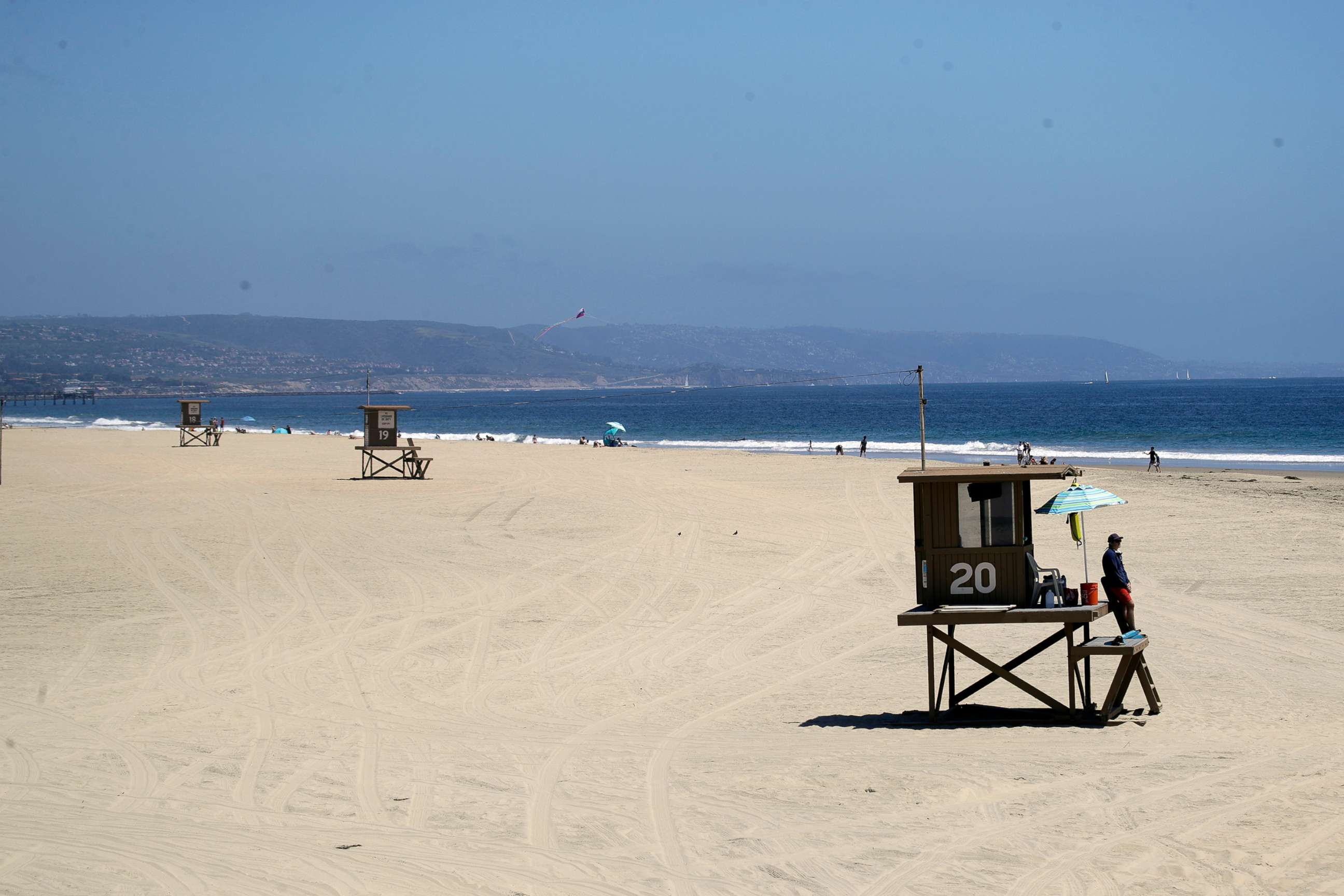
He also says the state "reached out to local law enforcement only to ready a closure of public spaces while not conferring with or obtaining the blessing of local authorities."
Newsom said on Monday that he worked with local officials over the weekend to discuss how Orange County beaches can reopen "in a way that can least allow us the kind of decompression that can avoid people mixing."
"We worked with them on guidelines and procedures to basically enforce a reopening that is phased and appropriate to local needs, local conditions," Newsom said, adding that for Laguna Beach and San Clemente beaches, "we signed off on those and we immediately lifted" the closures.
At Monday's briefing, Newsom said he was "very close" to reaching agreements with the other Orange County cities.
California has over 54,000 confirmed cases and at least 2,254 fatalities.
This Friday, some California retail -- like clothing stores, florists and bookstores -- can reopen with curbside pickup, Newsom announced. Offices, restaurants and malls will not open.
Tune into ABC at 1 p.m. ET and ABC News Live at 4 p.m. ET every weekday for special coverage of the novel coronavirus with the full ABC News team, including the latest news, context and analysis.
3:42 p.m.: DC's Latino population has highest coronavirus infection rate per capita in district
The Latino population in Washington, D.C. has the highest COVID-19 infection rate per capita in the nation’s capital.
Dr. LaQuandra Nesbitt, director of the D.C. Department of Health, said Latino/Hispanic residents are seeing 1,200 infections per 100,000 residents, compared to 820 infections per 100,000 residents for blacks, and 175 per 100,000 for whites.
About half of the 24 infants who have been infected in D.C. are Latino, Nesbitt said.
D.C.'s Latino/Hispanic population is just over 11%.
Meanwhile, African Americans make up approximately 46% of the D.C. population but account for almost 80% of the coronavirus fatalities.
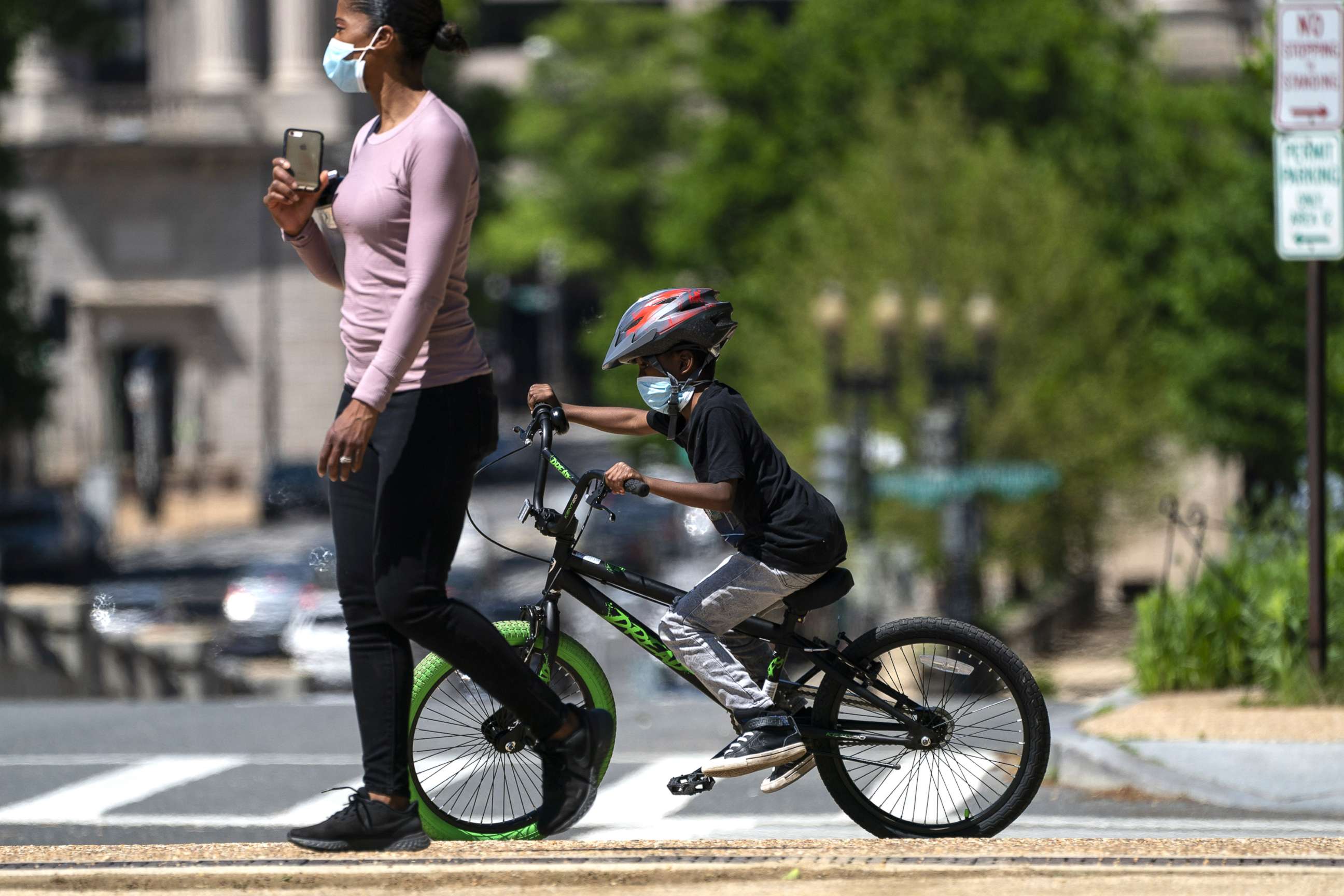
Nesbitt said, "The disparities and the impact to the Hispanic and Latino and African American and black communities are stark in our city and have raised again some of the things that we need to be more attentive around, in terms of how the wards, where many of these residents live, may be presenting some opportunities for us to focus interventions."
1:34 p.m.: NJ schools closed for rest of academic year
In New Jersey, where 7,910 people have succumbed to the coronavirus, schools will remain closed for the rest of the academic year with students continuing to learn remotely, Gov. Phil Murphy said.
New Jersey parks reopened this weekend for residents to enjoy exercise in the spring weather, and the governor said when he and his wife went for a run in a Monmouth County park on Sunday, "they had the place set up exactly as the doctor ordered."
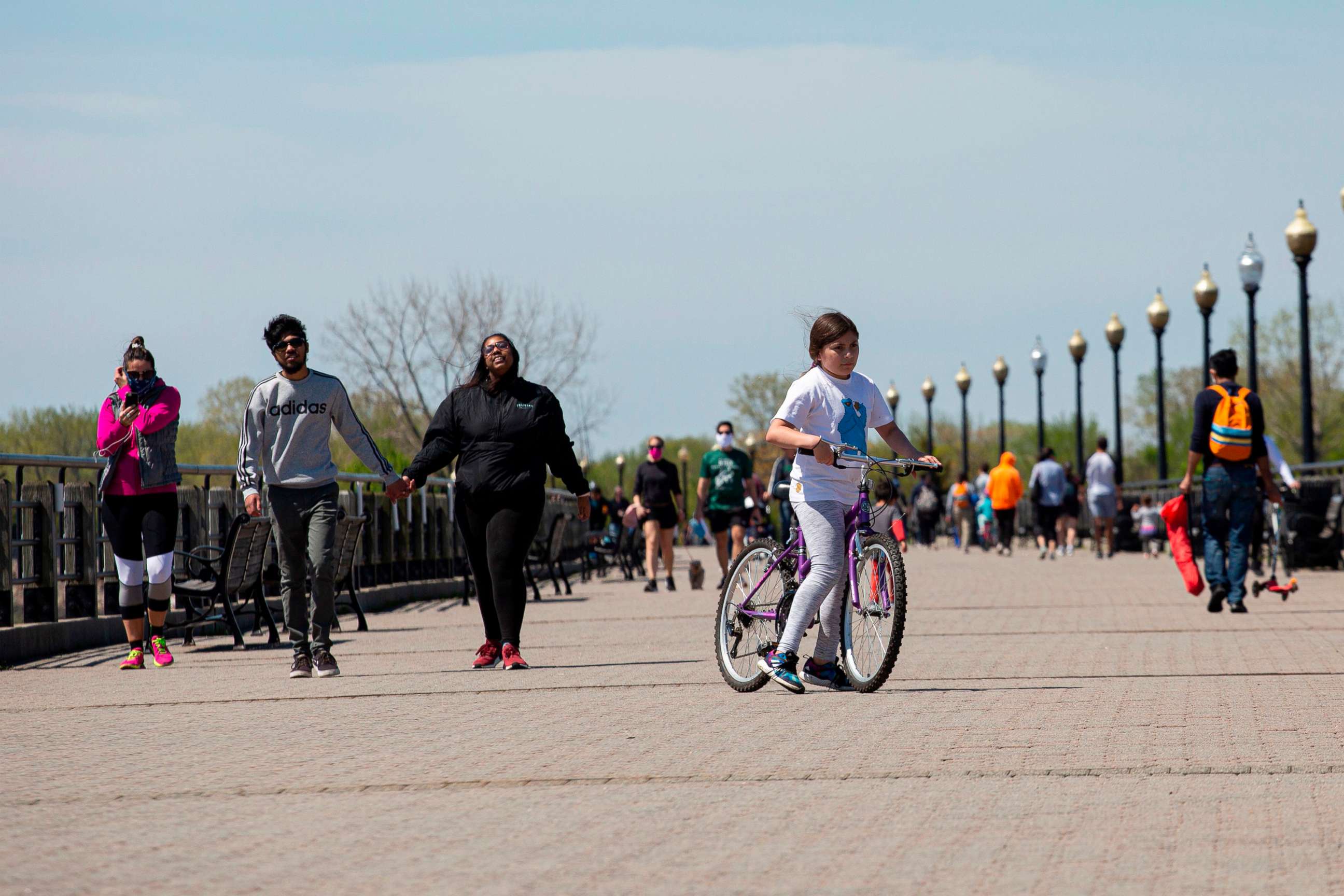
"Folks did not congregate," he said. "It was generally a very, very positive experience. The only exception and I want to hit this point again hard, not enough masks. I'd say 80 or 90% of the folks were not wearing masks."
12:55 p.m.: All 2020 NFL games to be played in US
All of the 2020 NFL games will be played in the U.S. to try to keep players, personnel and fans safe, the league said Monday.
The NFL had been planning to play one game in Mexico City and four games in London.
"We greatly appreciate the support of our governmental and stadium partners in Mexico and the United Kingdom, who all agree with this decision, and we look forward to returning for games in both countries in the 2021 season," Chris Halpin, NFL executive vice president and chief strategy & growth officer, said in a statement.
12:10 p.m.: Cuomo outlines factors that will determine when a region can reopen
In New York state, 226 people lost their lives to the coronavirus on Sunday, including 33 people who were in nursing homes, Gov. Andrew Cuomo said Monday.
The state's total number of hospitalizations is down, and while Cuomo said New York is "on the other side the mountain," he added, "unfortunately, the decline from the mountain is not as steep as the incline."
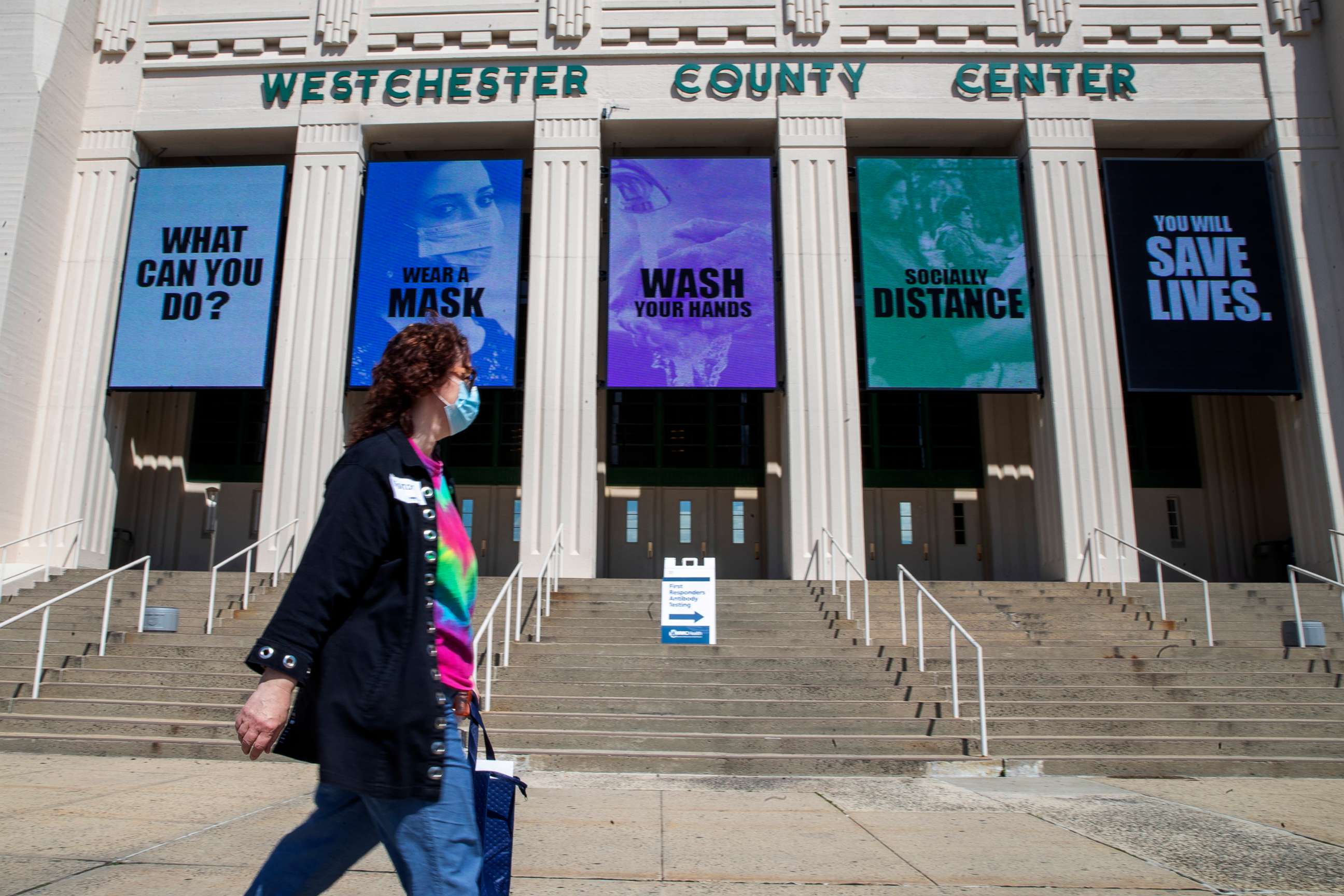
The statewide PAUSE order expires on May 15, after which regions can start to reopen based on their own analysis. But when it comes to reopening, Cuomo said he will only go by the data and the science.
"This is no gut instinct," he said.
Cuomo said these four factors will determine when a region can reopen: monitoring new infections, health care capacity, diagnosing testing capacity and contact tracing capacity.
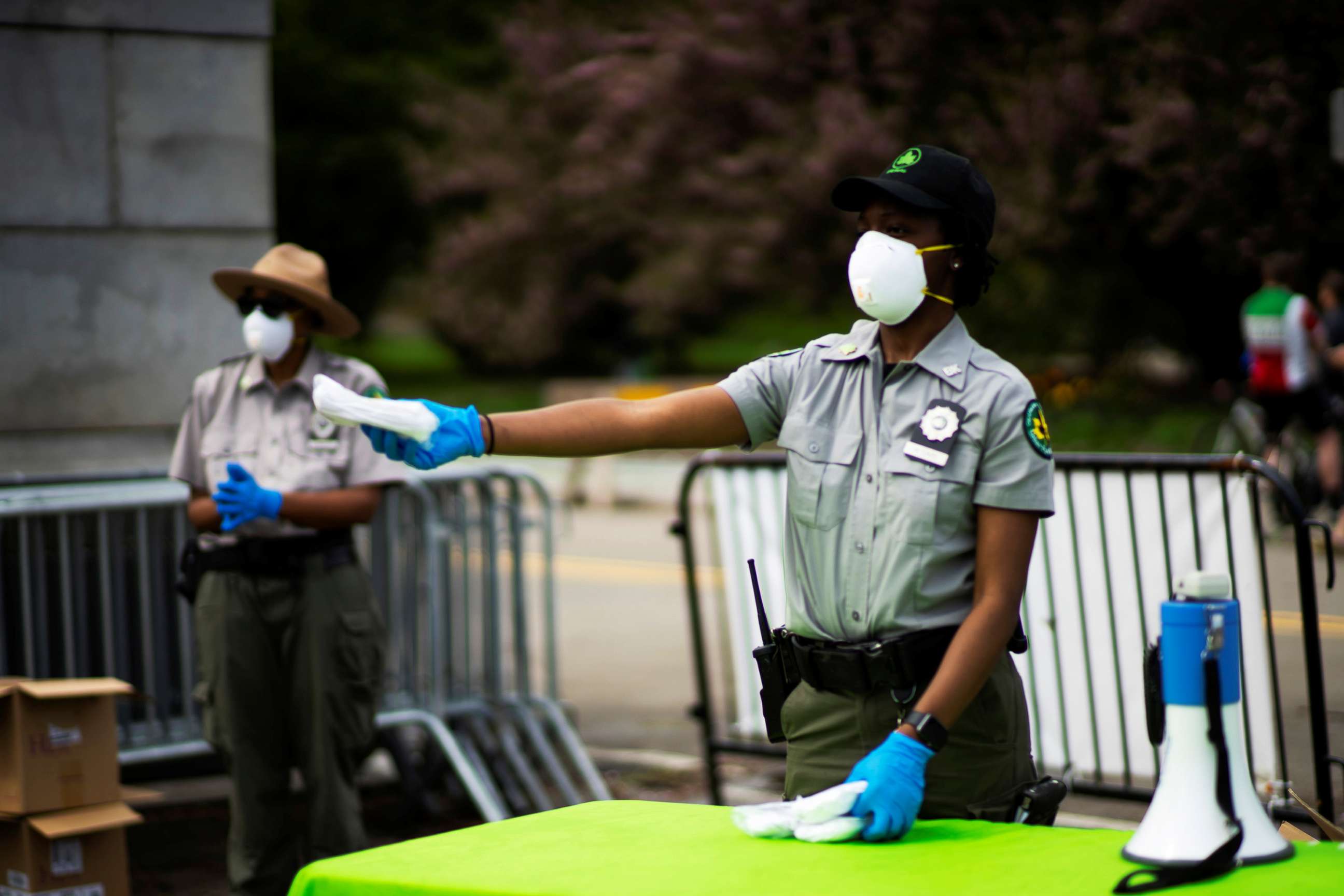
Cuomo also brought up the 1918 flu pandemic, stressing, "the places that opened too soon saw that flu come right back. By the way, that flu was not one wave. That was three waves ... second wave was worse than the first wave."
Businesses that are most essential and pose the lowest risk will be opened first, like construction, manufacturing and select retail with curbside pickup, the governor said
The next phase would be professional services, retail, administrative support, real estate, finance and insurance.
That's followed by hotels, restaurants and food services, Cuomo said.
Businesses also must take safety precautions, like adjusting workplace hours and design to promote social distancing, he said.
11:45 a.m.: Denver airport to require all passengers, visitors to wear face coverings
Denver International Airport will require all passengers and visitors to wear face coverings beginning May 6, in compliance with the mayor's order mandating face coverings in public.
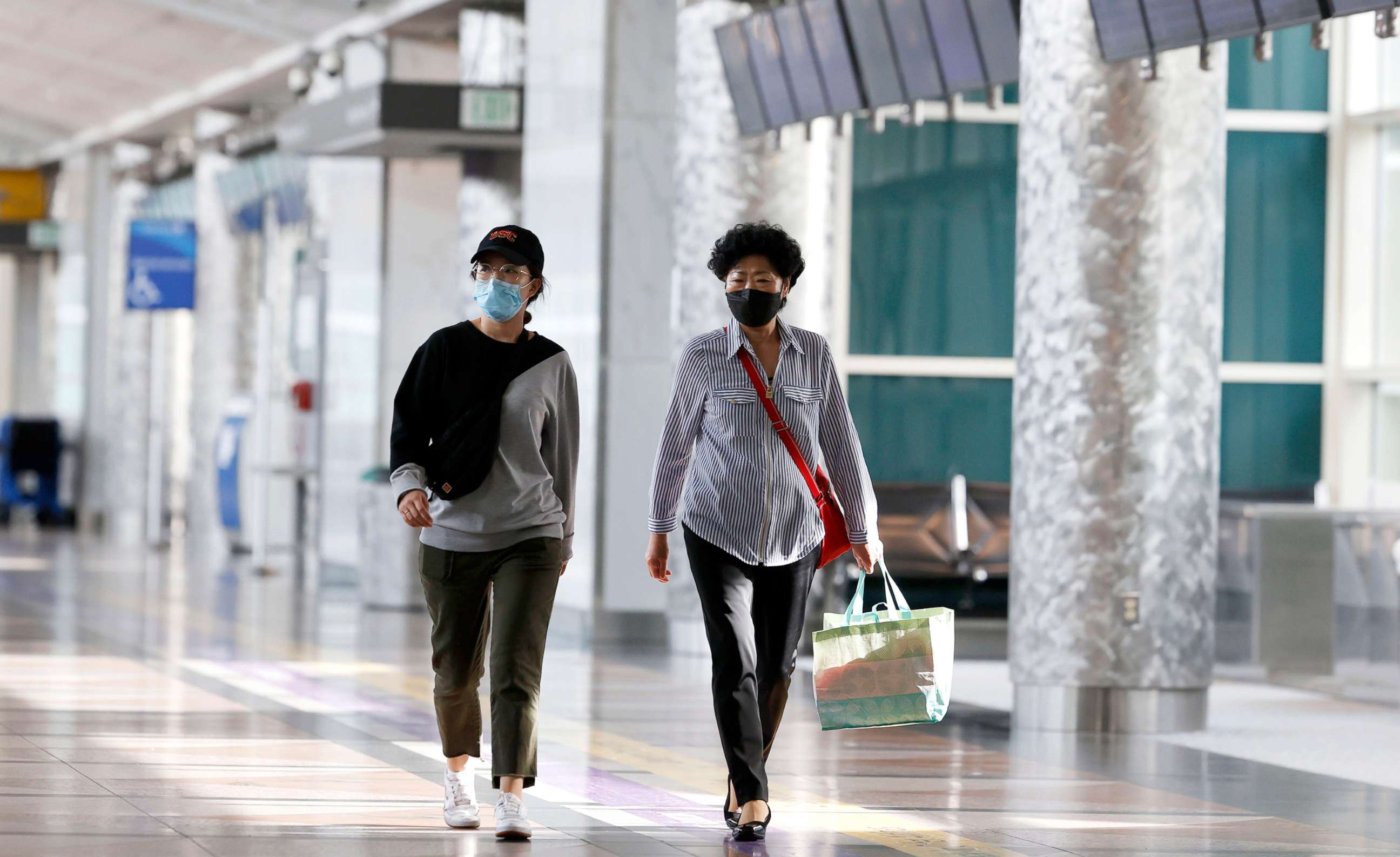
Travelers should be prepared to adjust their mask so that TSA officers can visually confirm their identity while going through security, airport officials said.
All airport employees also must wear face coverings.
To help stop the spread of the virus, Denver's airport now has implemented new measures that include: disabling air hand dryers, adding disinfecting wipe dispensers at each gate and reorganizing TSA security lines to promote social distancing.
11:30 a.m.: Carnival to resume some North American cruises in August
Carnival says all North American cruises from June 27 to July 31 are canceled, but that the cruise line will start up some cruises on Aug. 1, with eight ships out of Miami, Port Canaveral and Galveston.
All other North American and Australian cruises are canceled through Aug. 31.
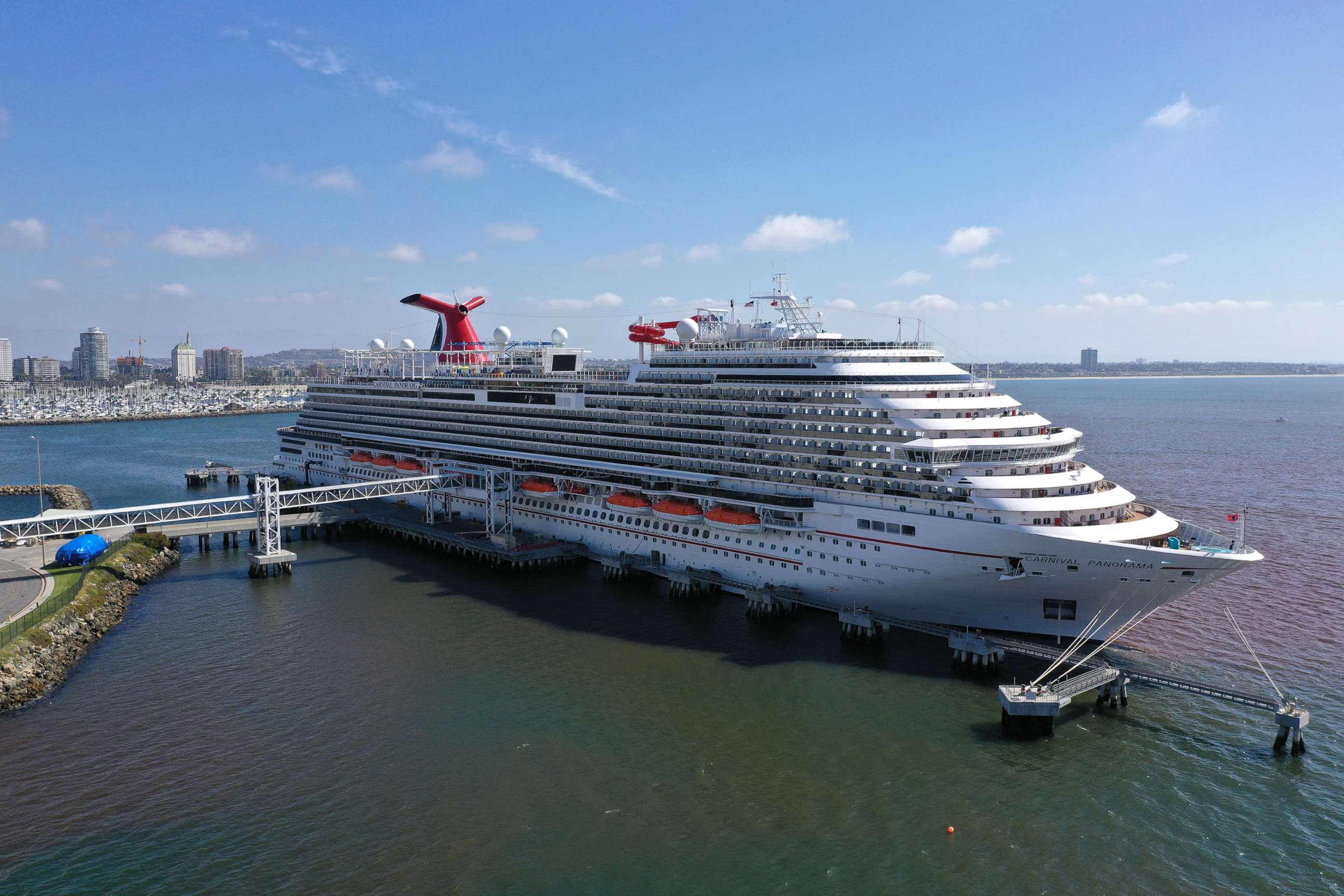
The Sept. 25 Carnival Spirit cruise from Vancouver to Honolulu is canceled, as well as the Oct. 6 transpacific cruise.
10 a.m.: NYC distributing 7.5 million face coverings for free
For the first time since March, hard-hit New York City is entering a week with a sufficient supply of personal protective equipment (PPE) at crisis standard, Mayor Bill de Blasio said Monday.
The city is starting a strategic reserve with a goal to create and maintain a 90-day stockpile of PPE and supplies for potential future spikes.
Officials are now distributing 7.5 million free face coverings citywide, including at grocery stores and parks, the mayor said.
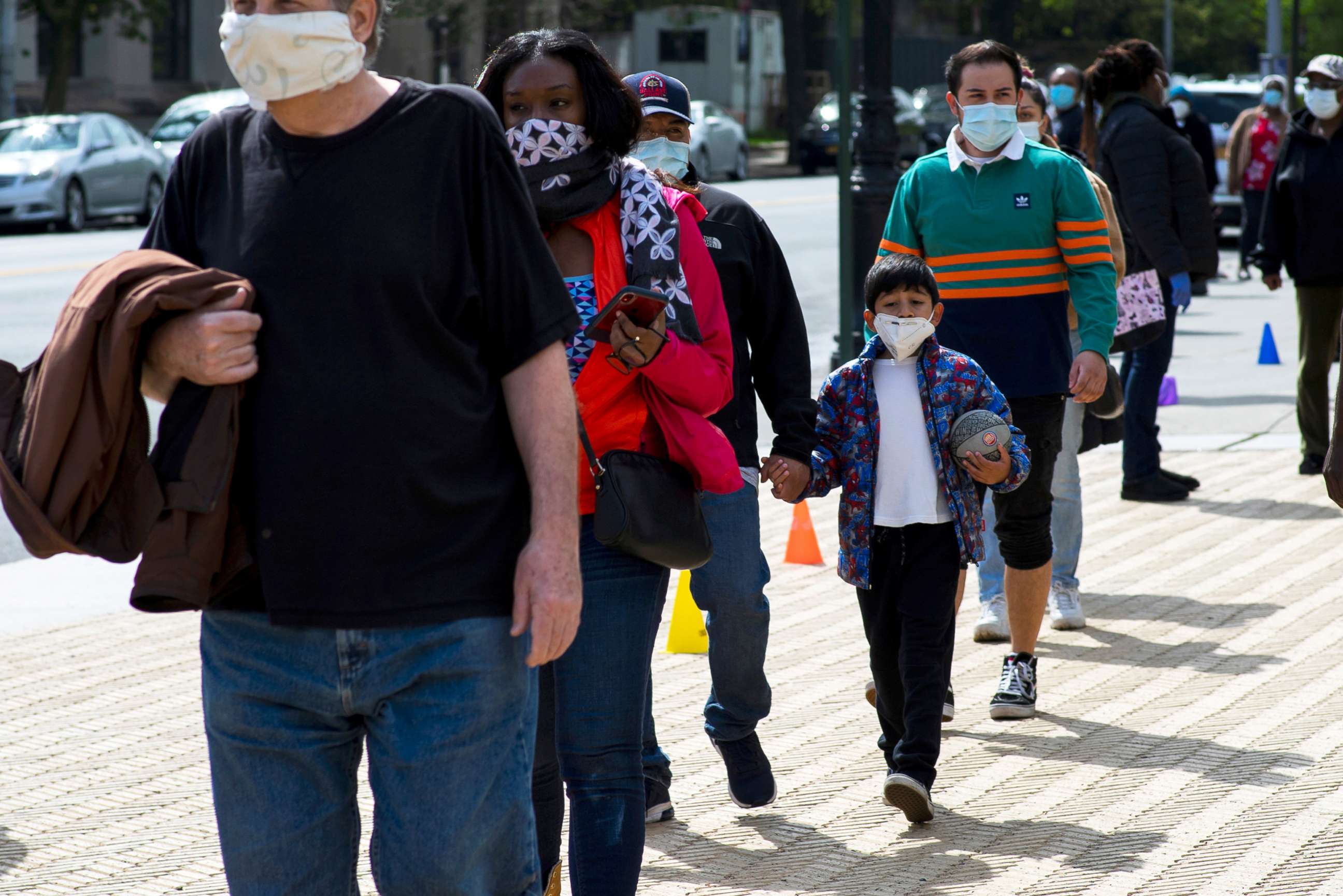
The distributions will continue "for weeks to come, to make sure everyone has what they need," de Blasio said.
All three tracking progress indicators for New York City are heading in a positive direction, the mayor said.
On Saturday, 88 people suspected of having the coronavirus were admitted to hospitals -- down from 113 on Friday.
Of the people tested across the city, 17% were positive on Saturday -- down from 20% on Friday.
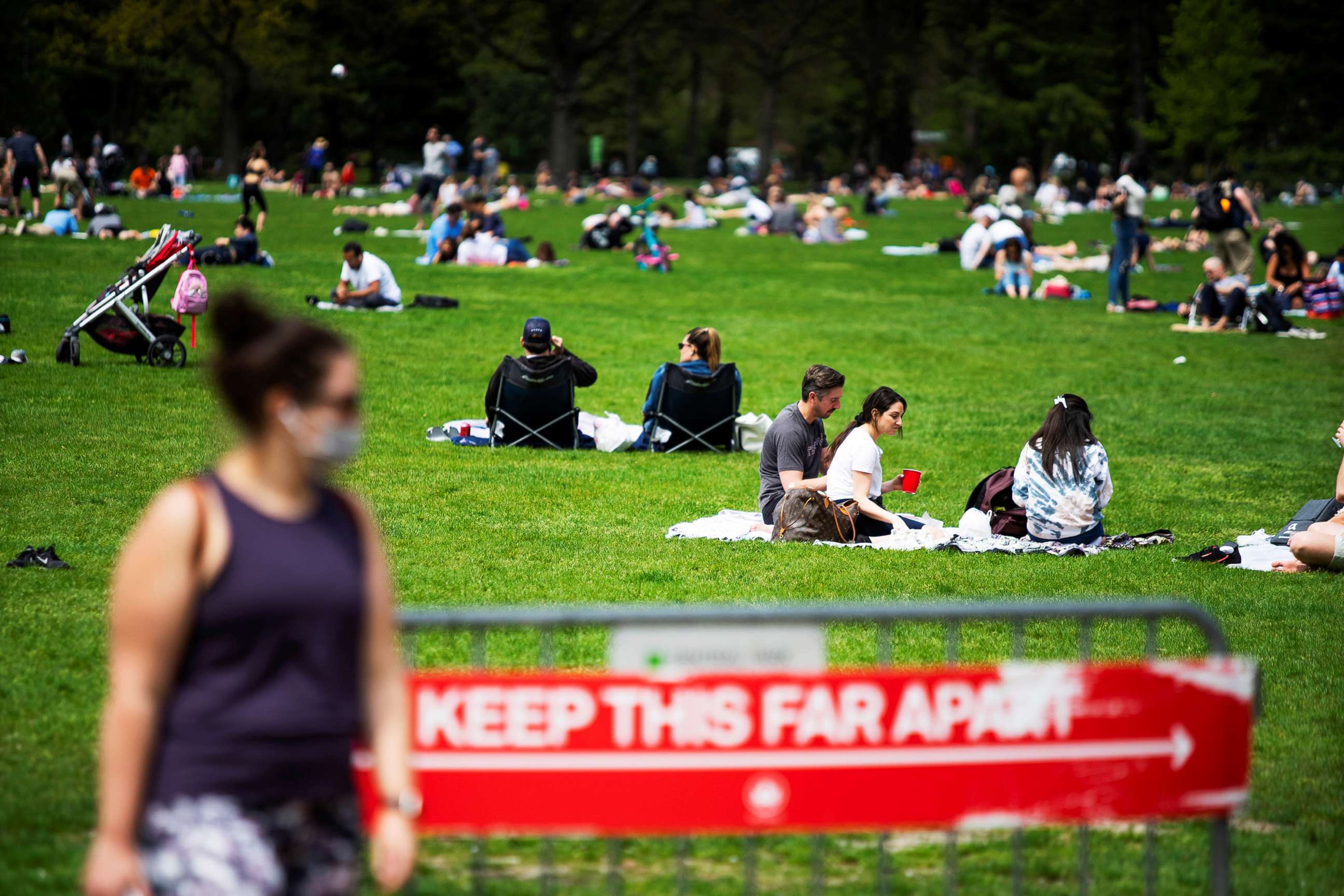
And 632 patients were in ICUs on Saturday, down from 645 on Friday.
"We are clearly winning this fight," de Blasio said. "Let's keep winning."
7:59 a.m.: South Korean schools to start reopening next week
Students will start returning to schools across South Korea next week, as the number of COVID-19 cases in the country steadily declines.
South Korean Education Minister Yoo Eun-hae announced Monday that high school seniors will return to classrooms on May 13, followed by students in lower grades in phased steps from May 20. The plan is for all schools to be fully reopened by June 1, she said.
Some 5.4 million students in South Korea have been taking classes online since April 9 due to the pandemic, according to Yoo.
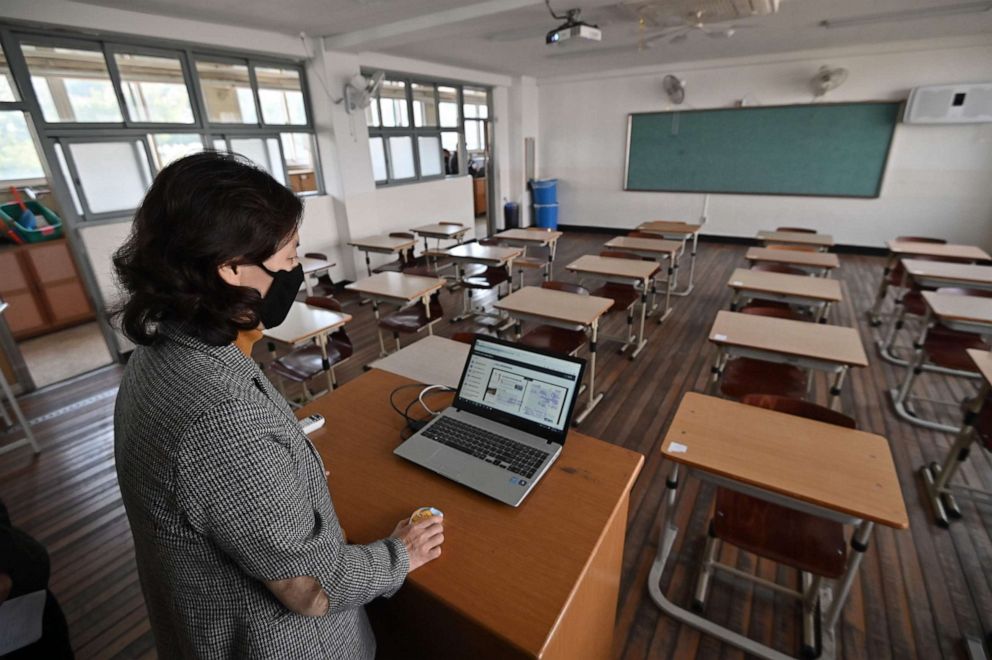
South Korean Prime Minister Chung Sye-kyun announced Sunday that the country will relax its strict social-distancing measures starting May 6, which were put in place to curb the spread of the novel coronavirus.
The nation's number of new COVID-19 cases has remained low. South Korea's Centers for Disease Control and Prevention reported just eight additional cases of the disease on Monday morning, all of which were imported from overseas. Out of 10,801 people in the country who have been diagnosed with COVID-19 so far, 9,217 have recovered and 252 have died.
What to know about coronavirus:
- How it started and how to protect yourself: Coronavirus explained
- What to do if you have symptoms: Coronavirus symptoms
- Tracking the spread in the U.S. and worldwide: Coronavirus map
7:27 a.m.: Russia reports over 10,000 new cases for 2nd straight day
Russia reported more than 10,000 new cases of COVID-19 on Monday for the second day in a row.
The country’s coronavirus response headquarters said 10,581 new infections had been registered in the past 24 hours, slightly under Sunday's daily record of 10,633 new cases.
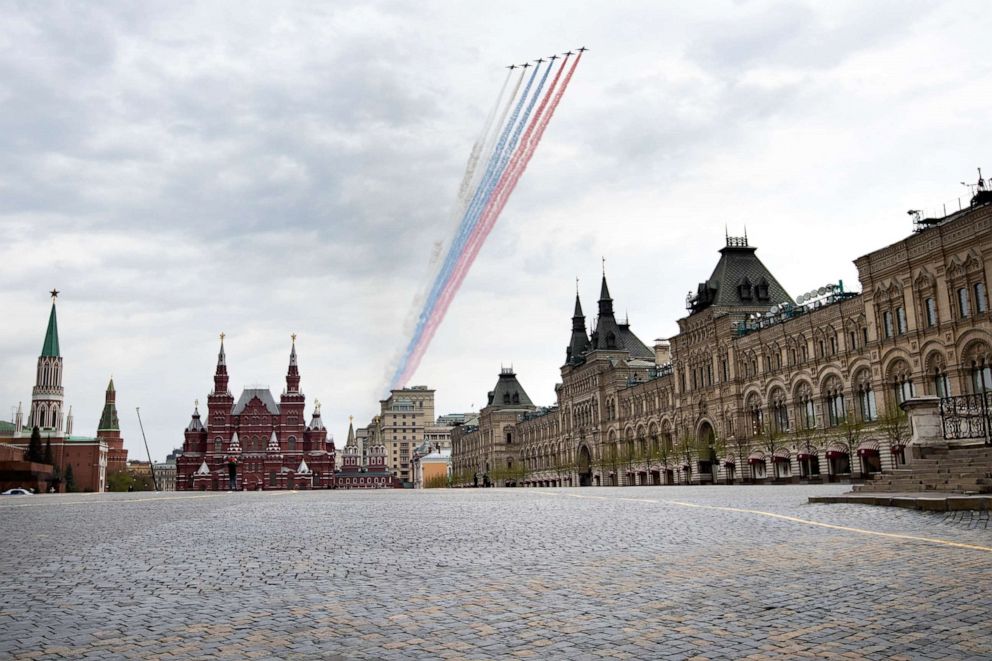
Russia now has 145,268 diagnosed cases of the disease, more than Turkey, Iran and China.
However, the country's death toll remains relatively low with just 76 fatalities reported in the past 24 hours, bringing the nationwide tally to 1,356, according to the coronavirus response headquarters.
6:39 a.m.: Virus was present in Europe in late December, doctor claims
The novel coronavirus may have reached Europe much earlier than originally thought.
Dr. Yves Cohen, an intensive care chief in Paris, told French news channel BFMTV during a live interview Sunday that they had retrospectively identified a positive case at Jean-Verdier Hospital in the northeastern Paris suburb of Bondy on Dec. 27. Doctors reanalyzed samples from molecular diagnostic tests of 24 patients in December and January who were suffering from pneumonia-like illness but had tested negative, Cohen said. Tests for COVID-19 were not being offered at that time.
One of the patient's samples tested positive for COVID-19. Doctors even tested the sample twice to be sure, Cohen said.
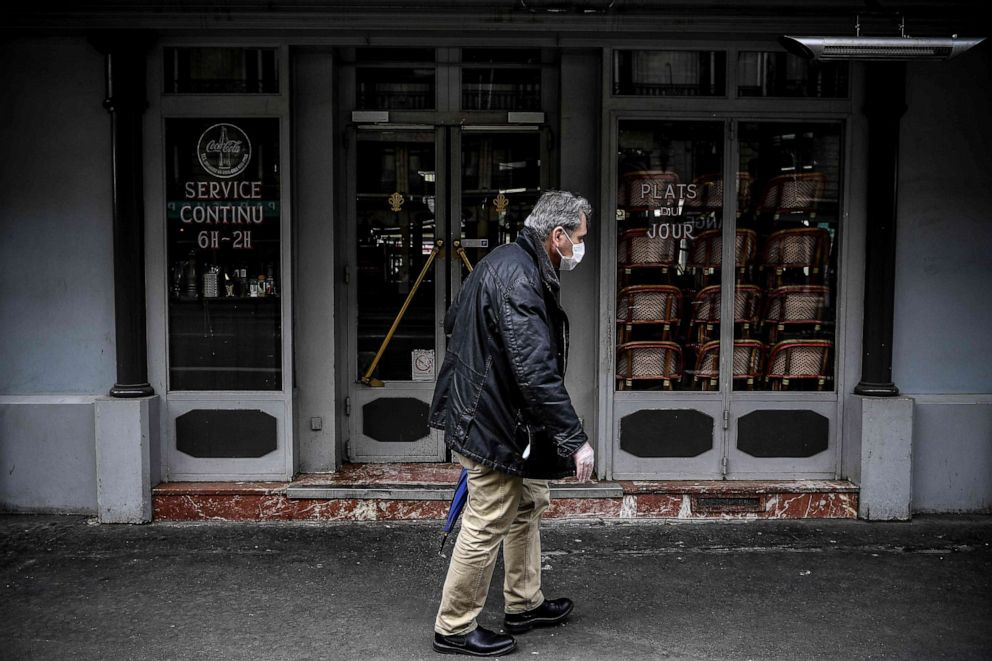
"We called the patient. He was sick for 15 days and infected his two children, but not his wife," Cohen told BFMTV. "One wonders if she has not been infected asymptomatically. We cannot go any further, but I think it is up to another institution to carry out the investigations."
Cohen said the man may be France's "Patient Zero." He urged doctors to retest all patient samples that had returned negative for pneumonia.
"Perhaps there are others in other areas," he added. "The virus was probably circulating (at that time)."
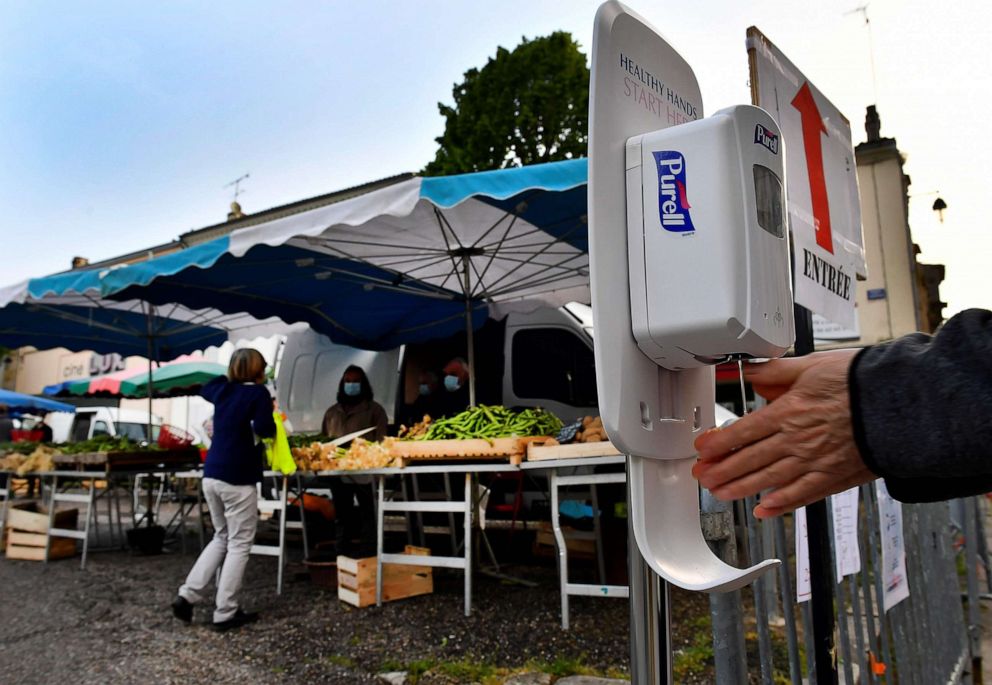
France reported its first confirmed case of COVID-19 in the southwestern city of Bordeaux on Jan. 24. It was also the first reported case in Europe.
With nearly 169,000 diagnosed cases of COVID-19 and almost 25,000 deaths, France is one of the worst-affected countries in the coronavirus pandemic, according to a count kept by Johns Hopkins University. The European country has been on a nationwide lockdown since March 17, though the French government plans to gradually ease restrictions from May 11.
6:05 a.m.: Japan to extend state of emergency until end of May
Japanese Prime Minister Shinzo Abe said Monday he had decided to extend the nationwide state of emergency to May 31.
During a meeting with the Japanese government's coronavirus task force, Abe said he will review the situation in mid-May to see whether the order can be lifted earlier.
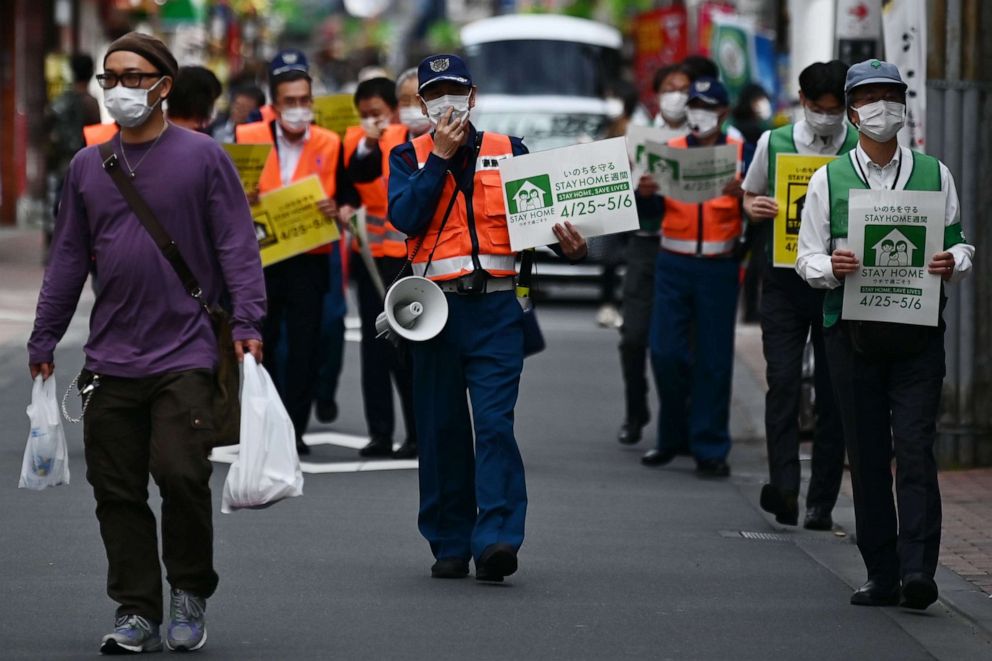
Japan has reported nearly 15,000 diagnosed cases of COVID-19 and at least 487 deaths, according to a count kept by Johns Hopkins University.
The island country was forced to postpone the 2020 Summer Olympics in Tokyo till next year due to the coronavirus pandemic.
5:03 a.m.: US reports over 25,000 new cases on Sunday
The United States reported more than 25,000 new cases of COVID-19 on Sunday, according to a count kept by Johns Hopkins University.
Although still high, the country's daily case count is down from a peak of around 36,300 new cases reported on April 24.
The number of new cases bring the U.S. tally to at least 1,158,041.
3:32 a.m.: Italy cautiously emerges from world's longest lockdown
Italy, the first country in the world to impose a nationwide lockdown due to the coronavirus pandemic, eased some restrictions on Monday as the number of new infections continued to decline.
Starting Monday, parks and public gardens will reopen, people will be allowed to visit relatives within the same region, restaurants can provide takeaway services and athletes will be able to resume training for individual sports. Still, Italian Prime Minister Giuseppe Conte has insisted that social distancing must remain at all times and large gatherings will not be permitted.
Construction sites, factories and wholesale supply businesses were allowed to resume work last week or as soon as they implement safety measures against the novel coronavirus. An estimated 4.4 million people in Italy have been able to return to work.
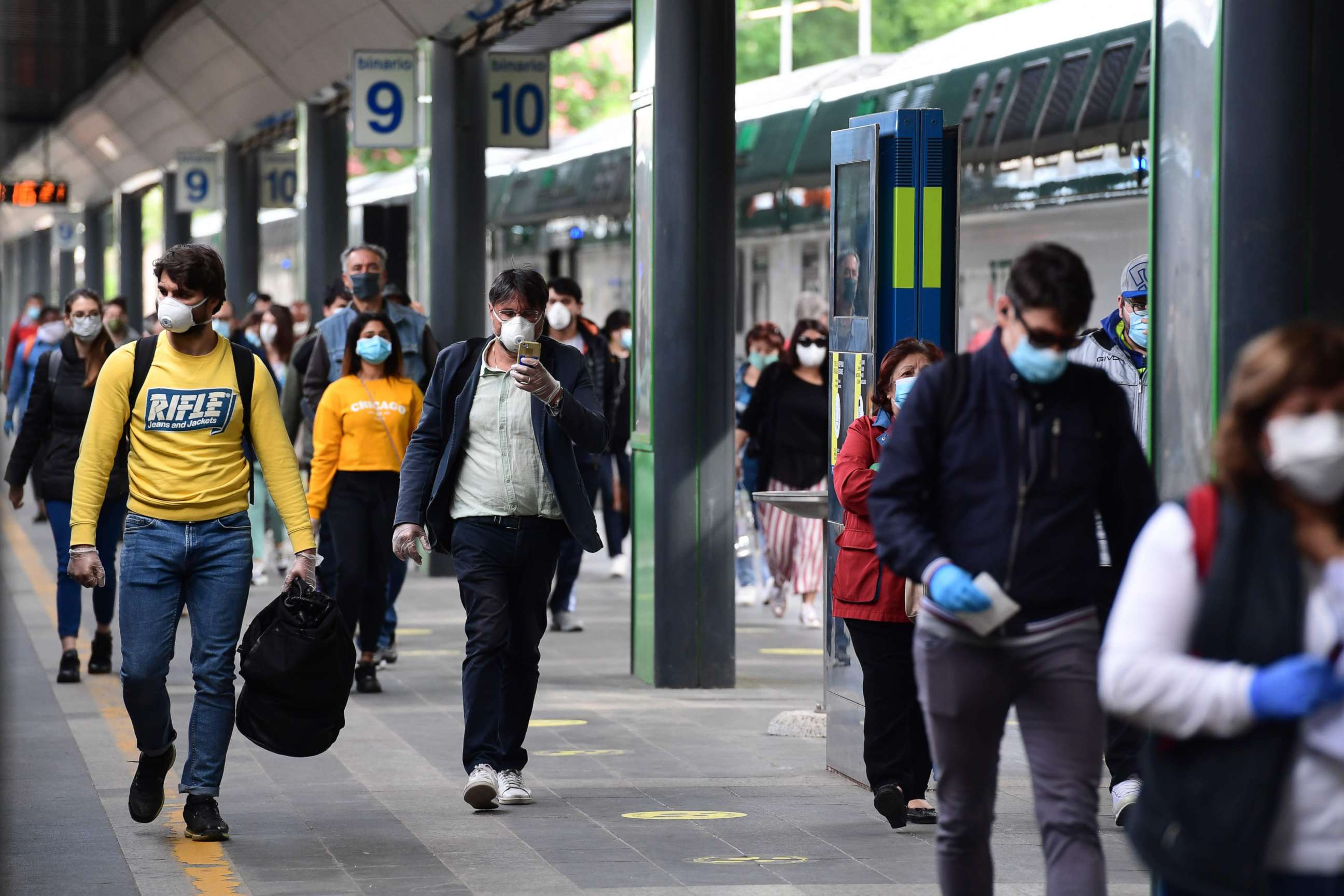
Then if all goes well, shops, museums and libraries will reopen on May 18, followed by bars, restaurants, cafes and beauty salons on June 1. Schools, however, will not reopen before September, according to Conte.
A number of other countries in Europe and around the world have also begun relaxing coronavirus-related restrictions or have announced plans to do so imminently.

Italy, one of the worst-hit countries in the pandemic, has been under a nationwide lockdown since March 9. More than 210,000 people in the European country have been diagnosed with COVID-19, and nearly 29,000 have died, according to a count kept by Johns Hopkins University.
Italy reported some 1,400 new cases on Sunday, down from its peak of around 6,600 new cases on March 21.
ABC News' Dee Carden, Katie Conway, Ibtissem Guenfoud, Mina Kaji, Alina Lobzina, Bonnie Mclean, Clayton Sandell and J. Gabriel Ware contributed to this report.
